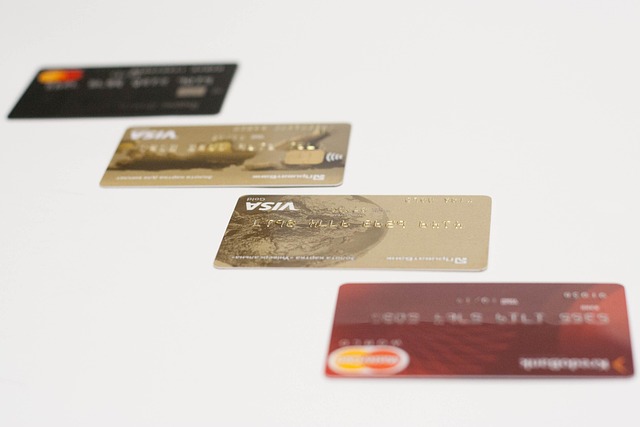Understanding Credit Cards and Smart Financial Management
Credit cards play a key role in modern financial life, offering convenience and flexibility for everyday purchases and larger expenses. While they provide access to short-term credit, understanding how they work is essential to managing personal finances responsibly. From learning about credit limits and payment cycles to exploring benefits like security and digital management tools, consumers today can use credit cards more strategically to maintain control, build financial literacy, and support long-term goals.

Credit cards serve as revolving credit facilities that allow consumers to borrow money up to a predetermined limit for purchases or cash advances. When you use a credit card, the card issuer pays the merchant on your behalf, creating a debt that you must repay according to the terms of your agreement. The convenience of credit cards extends beyond simple transactions, offering purchase protection, fraud prevention, and the ability to build credit history when used responsibly.
How Credit Cards Work and Why They Matter
Credit cards operate on a monthly billing cycle, typically lasting 28-31 days. During this period, you can make purchases up to your credit limit without immediately paying for them. At the end of each cycle, you receive a statement showing your balance, minimum payment due, and payment deadline. If you pay the full balance by the due date, you avoid interest charges entirely. However, carrying a balance forward results in interest charges calculated as an Annual Percentage Rate (APR), which can significantly increase the cost of your purchases over time.
The importance of credit cards extends beyond convenience. They help establish and build your credit score, which affects your ability to secure loans, mortgages, and even some employment opportunities. Regular, responsible use demonstrates financial reliability to credit agencies, while missed payments or excessive debt can negatively impact your credit rating for years.
Different Types of Credit Cards Explained
The UK credit card market offers various card types designed for different financial needs and circumstances. Standard credit cards provide basic functionality with varying interest rates and credit limits based on your creditworthiness. Cashback cards offer percentage returns on purchases, typically ranging from 0.5% to 3% depending on spending categories. Travel cards provide benefits like air miles, hotel points, or reduced foreign transaction fees for frequent travellers.
Balance transfer cards feature promotional periods with low or zero interest rates, allowing you to consolidate debt from other cards. These typically offer 0% APR for 12-29 months, though balance transfer fees usually apply. Secured credit cards require a cash deposit as collateral and help individuals with limited or damaged credit history rebuild their financial standing. Premium cards offer enhanced rewards and exclusive perks but often carry annual fees and require excellent credit scores for approval.
Understanding Credit Limits and Interest Rates
Credit limits represent the maximum amount you can borrow on your card at any given time. Card issuers determine these limits based on your income, credit history, existing debts, and overall financial stability. Exceeding your credit limit typically results in penalty fees and potential damage to your credit score. Financial experts recommend keeping your credit utilisation below 30% of your available limit to maintain optimal credit health.
Interest rates vary significantly between cards and individual circumstances. Standard purchase APR in the UK typically ranges from 18% to 30% annually, though promotional rates may offer lower introductory periods. Cash advances usually carry higher interest rates and begin accruing interest immediately, without a grace period. Understanding these rates helps you make informed decisions about when and how to use your credit card effectively.
The Importance of On-Time Payments
Timely payments represent the most crucial aspect of responsible credit card management. Payment history accounts for approximately 35% of your credit score calculation, making it the single most influential factor in determining your creditworthiness. Late payments can result in penalty fees, increased interest rates, and negative marks on your credit report that remain visible for up to six years.
Establishing automatic payments for at least the minimum amount due helps prevent accidental late payments. However, paying only the minimum extends repayment periods significantly and increases total interest costs. Whenever possible, aim to pay the full statement balance to avoid interest charges entirely and maintain optimal financial health.
Digital Tools for Managing Credit Card Expenses
Modern technology offers numerous tools to help manage credit card expenses effectively. Most card issuers provide mobile apps with real-time transaction notifications, spending categorisation, and balance alerts. These features help you monitor spending patterns and avoid exceeding your budget or credit limit. Many apps also offer credit score monitoring and personalised financial insights to improve your overall financial management.
Third-party budgeting applications can aggregate multiple credit card accounts, providing comprehensive spending overviews and automated expense categorisation. Some tools offer spending alerts when you approach predetermined limits in specific categories, helping maintain disciplined financial habits. Digital payment reminders ensure you never miss payment deadlines, while automated savings features can help build emergency funds to reduce reliance on credit.
| Provider | Card Type | APR Range | Annual Fee |
|---|---|---|---|
| Barclaycard | Cashback | 22.9% - 25.9% | £0 |
| Halifax | Balance Transfer | 18.9% - 25.9% | £0 |
| American Express | Rewards | 22.2% - 28.1% | £25 - £450 |
| Santander | Travel | 18.9% - 25.9% | £0 |
| HSBC | Standard | 18.9% - 25.9% | £0 |
Prices, rates, or cost estimates mentioned in this article are based on the latest available information but may change over time. Independent research is advised before making financial decisions.
Responsible credit card usage requires understanding the fundamental mechanics of how these financial tools operate and implementing disciplined management strategies. By choosing appropriate card types, maintaining low credit utilisation, making timely payments, and leveraging digital management tools, you can harness the benefits of credit cards while avoiding common pitfalls. Regular monitoring of your credit report and staying informed about changing terms and conditions ensures you maintain control over your financial wellbeing and continue building positive credit history for future financial opportunities.




